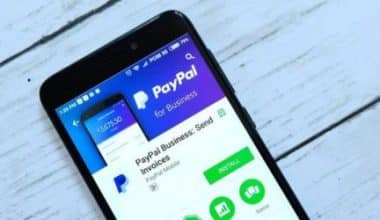There are several ways to get loans for a business startup, even if you have bad credit or no revenue. This article will discuss some of the best ways to get startup business loans, even if you have bad credit or no revenue.
How to Get Business Loans with No Revenue
The SBA loan programs are widely regarded as the gold standard for startup business loans. They provide large amounts of funding, long repayment terms, and low-interest rates but often require six months to two years in business and a 20% to 30% cash injection from the borrower. However, the SBA is not the only route to success. There are other ways to get a loan for a new business if you don’t meet the SBA’s requirements.
Can You Get a Startup Business Loans With No Revenue or Bad Credit?
Ads for “guaranteed approval” and “no credit check loans” can be very appealing if you have bad credit and are looking for financing. Are you wondering if a guaranteed business loan could solve all your issues?
Not so quickly. Before you apply for any financing options that seem too good to be true, you should be very careful. Here’s the reality: There is no such thing as guaranteed approval for bad credit when it comes to financing.
Before you start to worry, you should know that having bad personal or business credit does not mean you can’t get business financing. On the other hand, any promise of guaranteed approval should raise a red flag.
Guaranteed approval promises may, at best, indicate that you’re dealing with a predatory lender. Worst-case scenario: the advertising you’re seeing is a scam.
It’s possible to get working capital loans and another financing. Some lenders in this article do not check personal credit or have less strict requirements for a startup with bad credit. Some small business lenders do not conduct personal credit checks. They will instead rely on other factors such as business revenue or, in the case of crowdfunding, a compelling business idea or need.
What Constitutes a Bad Credit Score?
You may not know you have bad credit if you’ve never checked your credit scores. Each lender determines its range for what it considers excellent, good, fair, and poor. There are, however, some general guidelines. The FICO Score, for example, ranges from 300 to 850. 500 are considered poor.
Small business lenders prefer credit scores of at least 650, and some require 680 or higher. On the other hand, some of the lenders in this article do not check personal credit or have less strict requirements.
Can I Get a Loan if I Just Started a Business?
Your new business may require capital, but that is not all it requires to take root and thrive. Building a business plan, seeking lenders, and putting together the financing you need to make your business a reality may make you a better businessperson. This benefit will last for you and your company.
Once you have the funds to get your business up and running, do everything you can to build and maintain your business credit as you go. Check your company’s credit score and read up on what goes into establishing a company’s creditworthiness. You’ll be much further ahead the next time you need a business loan.
How Do I Fund a Business With No Money?
Banks, credit unions, online lenders, and even microlenders specializing in smaller loans offer business loans. However, not every potential lender will be a good fit for your new venture. Indeed, many lenders require loan applicants to have been in business for at least a year or two before being considered for a loan. It’s also a good idea to get multiple loans offers if possible, so you should cast a wide net. The more potential lenders you locate, the better your chances of obtaining a loan that meets your requirements. Here are some suggestions of where you can begin
#1. Your Financial Institution
If you’ve opened a business bank account, talk to your bank about business loans and credit. Even if your new business does not qualify for the full loan amount, you seek from your bank, a small loan or line of credit may be beneficial. It will establish a credit relationship for the future, which will aid in developing your business credit score.
#2. Online Commercial Lenders
Startups may find online lenders more accommodating than traditional banks, though interest rates are typically high.
#3. Microlenders
If you need less than $50,000 to start your business, a microlender such as Kiva or Opportunity Fund may be a good option. These nonprofits or alternative lenders assist businesses in obtaining small loans at low-interest rates. Many of them are startup-friendly.
The Small Business Administration may be a useful resource when looking for loans. Although the SBA does not make loans, it does guarantee small business loans made by banks and credit unions. Working with the SBA can benefit new business owners because an SBA guarantee removes some risks from business lending. The SBA’s LenderMatch and SCORE programs can help you find a lender and get expert advice. The disadvantages: SBA loans have several requirements, and the application and funding process can be time-consuming.
Can I Get a Business Loan With Just My EIN Number?
Yes, there are times when a lender will only look at your EIN and not your credit score when deciding whether or not to lend you money. Remember that your EIN is just one piece of the puzzle when applying for a small business loan. A lender may use your business credit score instead of your credit score.
Suppose you have a long and established credit history, solid financial management, cashflows, profits, and balance sheets. In that case, If you don’t put up any personal assets or guarantees for the loan, the debt is the company’s responsibility, not yours. If they are a non-traditional lender who does not look at personal credit scores, Most small businesses’ reasons for applying with only an EIN are likely a combination of two and three from the list above. As a result, we’ll spend the rest of this article answering these questions.
What Types of Loans Are Available to Help Me Start My Own Business?
If a traditional business loan isn’t in the cards for you and your startup, alternative funding may be able to help you get started. Self-funding is the most common option here. You may be able to “bootstrap” your way to loan worthiness in a few years by using your savings or investments—or you may be able to avoid the need for a loan entirely. Be careful not to deplete your retirement and emergency savings, as this could leave you high and dry if your business venture fails. Here are some ways to fund your business that are different from traditional lending:
#1. Family and Friends
You can get your business off the ground without a long history or an impressive business credit score if people close to you are willing and able to lend or invest. Be aware that it could hurt your relationship with them if you don’t repay a loan from a friend or family member. Put the agreement in writing and keep your end of the bargain.
Getting an early investment from a venture capital firm or an angel investor comes with its challenges and benefits. Venture capitalists usually want to own a piece of your business and have a role in it in the future. They prefer fast-growing companies with high growth potential. Investors in a venture capital fund do not have to make monthly payments, despite what most people think.
#2. Crowdfunding
You can hatch your innovation or new business on Kickstarter or many other crowdfunding platforms. Visit each potential site to get an idea of which offers are successful and how they are structured. Take note of the following terms: Understand what will happen if your transaction fails.
#3. Vendor Financing
If you can convince a vendor that your business is good, they may be willing to help you finance it through credit, a loan, or an investment in your business. If you’re short on cash, this could be a viable option for financing equipment or creating inventory.
#4. Personal Loans or Credit
If nothing else works and you need more money, you could use a personal loan or credit card to pay for your new business. Just be mindful of your risk when using personal credit to start a new business. If you take on too much personal debt and the company fails, you could be in serious financial straits. You may lose your home or other assets if you use them as collateral. Believe in yourself, but think twice before taking this step.
Do Banks Give Loans to Startups?
Banks take on a higher-than-usual risk when lending to new businesses because 80–90% of startups fail. Because of this risk, the requirements for getting a loan are often higher than for an established business. Also, banks require startups to get SBA loans, whose lending guidelines weed out candidates with high default rates. So, yes, banks do make loans to startups if they can prove their ability to repay them. In general, this means:
Strong collateral. Borrowers must put up something, usually their home or another significant asset. Collateral shows that borrowers have “skin in the game” and will not walk away if their business fails. What amount of collateral is required? When the collateral at least matches the loan amount, the chances of loan approval increase. Startups throughout history have obtained a loan and put down the required 10–20% only to find themselves cash-strapped and unable to make regular payments. That is why having a cushion is essential.
The Small Business Administration and the banks that work with it require that borrowers have enough money in their bank accounts to pay back their loans for two months. And two months before you apply for the loan, they will expect to see these funds on your bank statements.
An experienced SBA lender can share more tips like these to help improve your chances of financing success. So plan ahead of time and consult with your banker.
Will Banks Give Loans Money to Start a Business?
Banks do lend to start-ups. The Small Business Administration (SBA) has a few exceptions to this rule in the form of programs that guarantee a portion of a new business’s startup costs, which lowers the risk for lending institutions.
As a result, your company must have hard assets that can be pledged to secure a business loan. Banks carefully examine these assets to ensure that they reduce risk. For example, if you pledge Accounts Receivable to back a commercial loan, the bank will check the major receivables accounts to ensure that the companies are solvent, and they will accept only a portion of the receivables, often 50 or even 75 percent, to back the loan. To obtain a business loan, you must pledge personal assets, typically your home equity.
Conclusion
Running your own business can be difficult; for many entrepreneurs, the most difficult part is getting started. While finding a lender from whom to borrow may be difficult, don’t rule out the possibility of obtaining startup business loans when you don’t have revenue.
Don’t be afraid to look into alternative financing options. Nonprofit lenders with microloan programs may be the best option for your company, or using a business credit card may be worth the risk if the interest rate is low. Business credit cards for startups can help your company build good credit and bridge cash flow gaps if necessary.
Related Articles
- SMALL BUSINESS LOAN: How to Get a Small Business Loan
- BUSINESS LOANS BAD CREDIT: Definition and How to Get It
- SBA LOAN PROCESS: What It Is and How It Works
- 10 Best STARTUP BUSINESS CREDIT CARDS In 2023
- HOW TO GET SBA LOAN APPROVED: Best Easy Guide (+ Free Tips)






